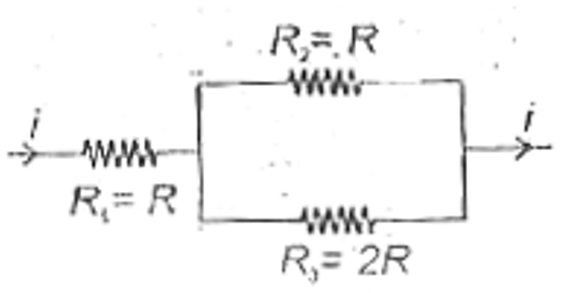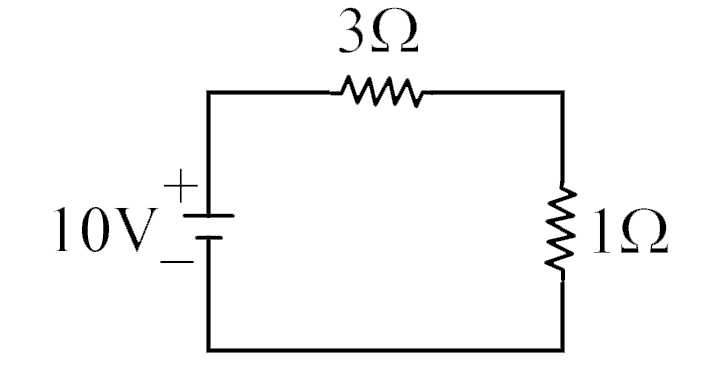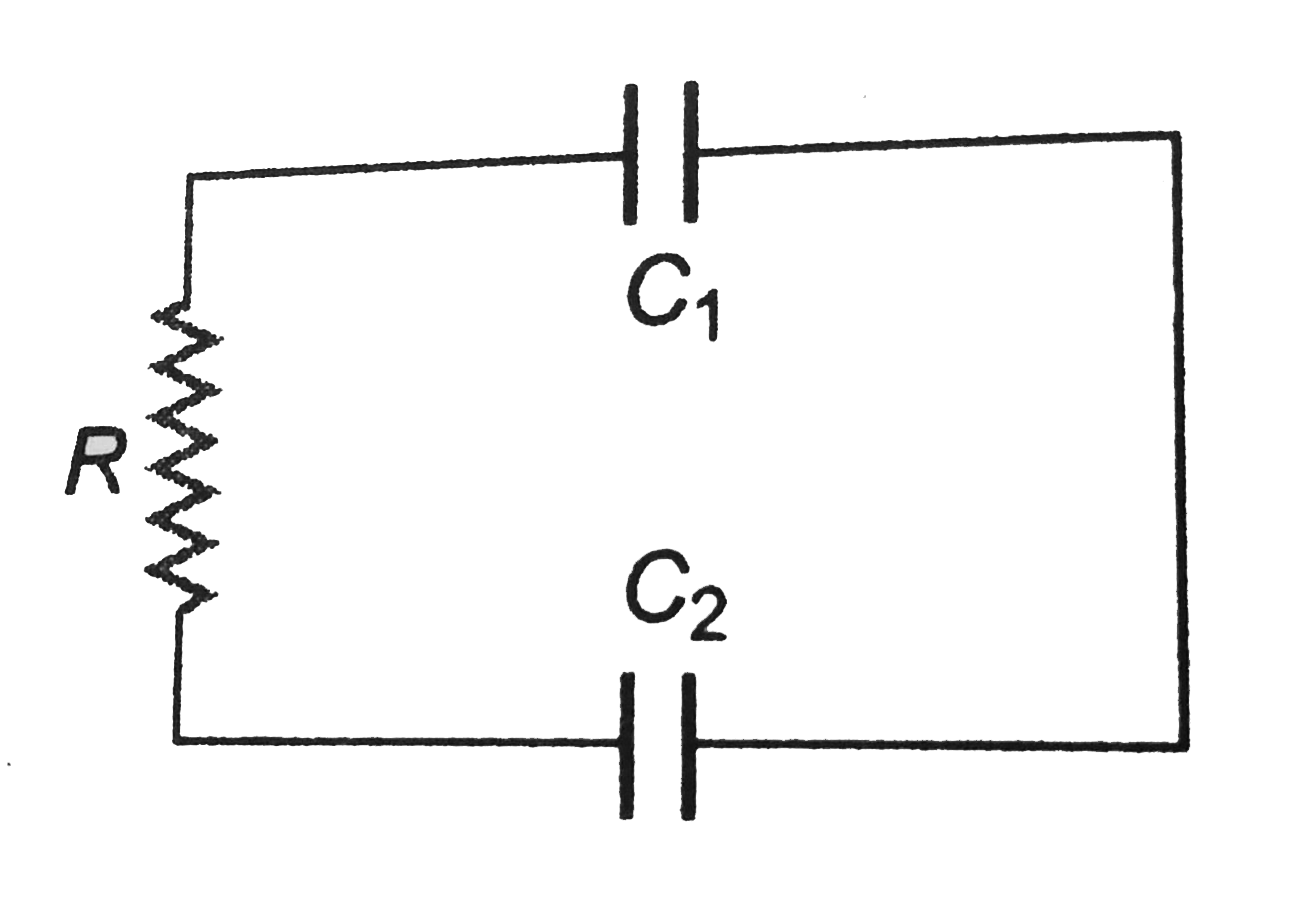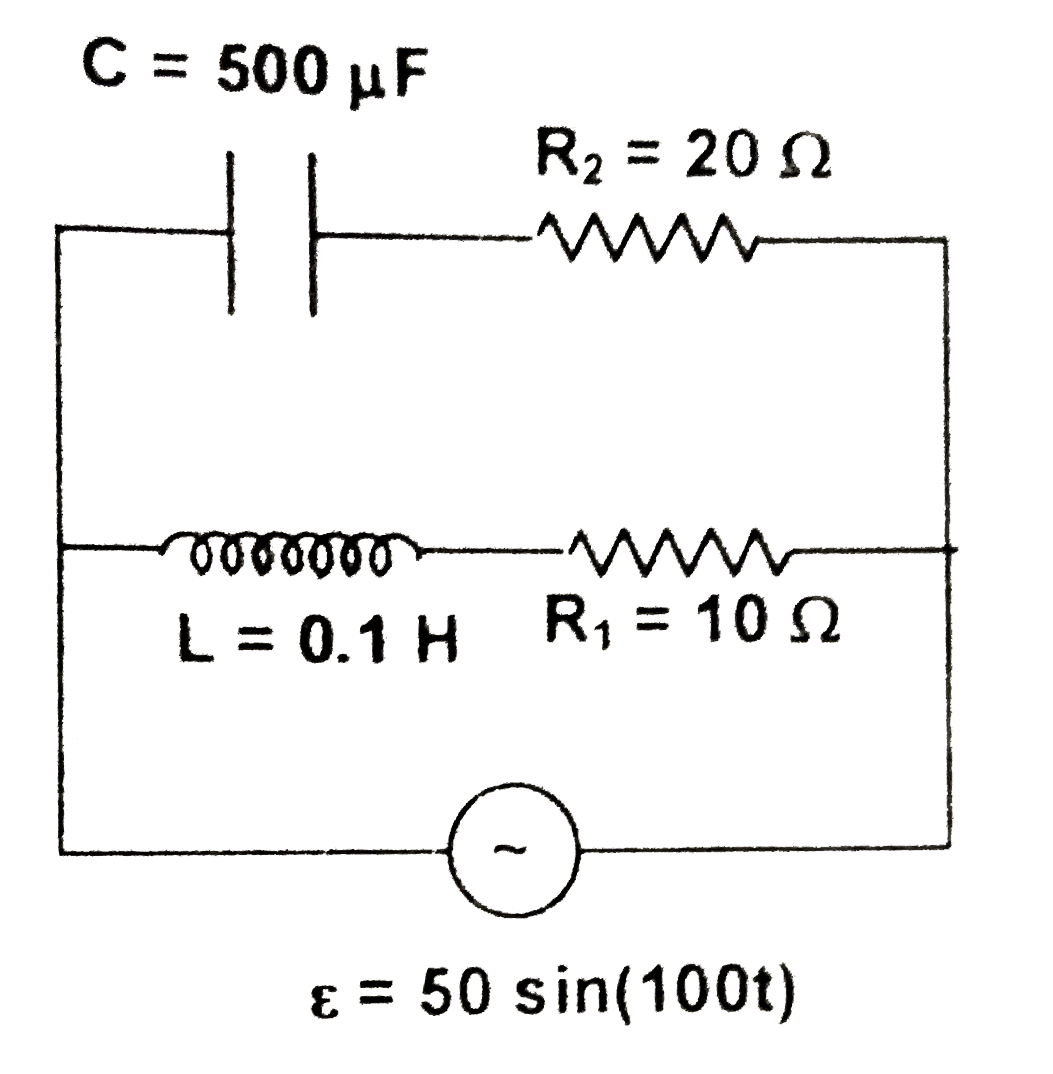A resistor dissipates the power when connected to a certain generator. If the resistor is put in series with , the power dissipated by
Decreases
Increases
Remains the same
Any of the above depending upon the relative values of and
The correct Answer is:A
(a) Equivalent resistance in the second case
Now, we know that
Since in the second case the resistance is higher than that in the first case .
Therefore power dissipation in the second case will be decreased.
Topper's Solved these Questions
- CURRENT ELECTRICITYBook:A2ZChapter:CURRENT ELECTRICITYExercise:Problems Based On Mixed Concepts
Explore 34 Videos
- CURRENT ELECTRICITYBook:A2ZChapter:CURRENT ELECTRICITYExercise:Section - A
Explore 1 Video
- CURRENT ELECTRICITYBook:A2ZChapter:CURRENT ELECTRICITYExercise:Potentiometer And Meter Bridge
Explore 45 Videos
- ATOMIC PHYSICSBook:A2ZChapter:ATOMIC PHYSICSExercise:Section D - Chapter End Test
Explore 30 Videos
- DUAL NATURE OF RADIATION AND MATTERBook:A2ZChapter:DUAL NATURE OF RADIATION AND MATTERExercise:Section D - Chapter End Test
Explore 30 Videos
Similar Questions
A resistor R1 consumes electrical power P1 when connected to an emfε. When resistor R2 is connected to the same emf , it consumes electrical power P2 . In terms of P1andP2, what is the total electrical power consumed when they are both connected to this emf source
(a) in parallel
(b) in series
View SolutionA resistor of resistance R is connected to an ideal battery. If the value of R is decreased,the power dissipated in the resistor will
View Solution
Knowledge Check
A resistor R1 dissipates the power P when connected to a certain generator. If the resistor R2 is put in series with R1, the power dissipated by R1
APB(PR_(2))/((R_(1)+R_(2)))CPR22(R1+R2)2DPR21(R1+R2)2If the current through a resistor in a circuit increases by 3%, the power dissipated by the resistor
Aincreases approximately by 3%Bincreases approximately by 6%Cincreases approximately by 9%Ddecreases approximately by 3%Five equal resistors when connected in series dissipated 5 W power. If they are connected in paralle, the power dissipated will be
A25 WB50 WC100 WD125 W
Current I flowing through resistor results in dissipation of power P. By what percentage will the power dissipated in the resistor increase if the current through the resistor is increased by 50%? Justify your answer with the help of mathematical calculations.
View SolutionIn the circuit shown ,the thermal power dissipated in R1 is P. The thermal power dissipated in R2 is .

View SolutionIn the following circuit, the 1Ω resistor dissipates power P. If the resistor is replaced by 9Ω, the power dissipated in it is

View SolutionA capacitors C1 is charged to a potential V and connected to another capacitor in seris with a resistor R as shown. It is observed that heat H1 is dissipated across resistance R, tilll the circuit reaches steady state. Same process is repeated using resistance of 2R. If H2 is heat dissipated in this case then

View Solution
In the circuit shown the average power developed in the resistor R1 is
View Solution

